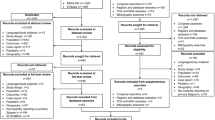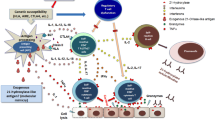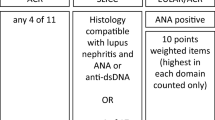Abstract
Familial Mediterranean fever (FMF) is an auto-inflammatory disease characterised by periodic attacks of fever and serositis. Recent genetic and epidemiological research have highlighted the importance of this disease. FMF is the most frequent periodic fever syndrome and is transmitted in an autosomal recessive fashion. The disease is caused by mutations in the gene on the short arm of chromosome 16, coding for the protein "pyrin". Pyrin is mainly expressed in neutrophils and monocytes and is among the proteins involved in the interleukin-1 inflammatory pathway. The recurrent attacks of fever are accompanied by severe abdominal pain, arthritis and/or chest pain along with a marked increase in acute phase reactants. Among these, serum amyloid A protein is especially important since it is the precursor of the amyloid A fibrils deposited in secondary renal amyloidosis. Renal amyloidosis has a grave prognosis. Differential diagnosis from other periodic fever syndromes is especially important in western European countries. Among these hyper IgD syndrome is common in Netherlands and the tumour necrosis factor receptor-associated periodic syndrome is especially common among Scottish and Irish families. Mutation analysis of the gene may be helpful in diagnosing FMF; however, if this is not possible, a trial of colchicine is a helpful diagnostic tool. The indications for life-long colchicine treatment should be discussed with the family. Conclusion: familial mediterranean fever and other auto-inflammatory syndromes should be suspected in children with recurrent febrile attacks. Early diagnosis will save the child from unnecessary work-up and kidney involvement.

Similar content being viewed by others
Abbreviations
- CINCA:
-
chronic infantile neurological cutaneous arthropathy
- FCU:
-
familial cold urticaria
- FCUS:
-
familial cold auto-inflammatory syndrome
- FMF:
-
familial mediterranean fever
- HIDS:
-
hyperimmunoglobulinaemia D syndrome
- IL:
-
interleukin
- MVK:
-
mevalonate kinase
- MWS:
-
Muckle-Wells syndrome
- PAN:
-
polyarteritis nodosa
- SAA:
-
serum amyloid A protein
- TRAPS:
-
tumour necrosis factor-receptor associated periodic fever syndrome
References
Akarsu N, Ozen S,Saatci U, Bakkaloglu A, Besbas N,Sarfarazi M (1997) Genetic linkage study of FMF to 16p13.3 and evidence for genetic heterogeneity in the Turkish population. J Med Genet 34: 573–578
Aksentijevich I, Torosyan Y, Samuels J, Centola M, Pras E, Chae JJ, Oddoux C, Wood G, Azzaro MP, Palumbo G, Giustolisi R, Pras M, Ostrer H, Kastner DL(1999) Mutation and haplotype studies of FMF reveal new ancestral relationships and evidence for a high carrier frequency with reduced penetrance in the Askhenazi Jewish population. Am J Hum Genet 64:949—962
Ben-Chetrit E, Levy M (1998) Colchicine: 1998 update. Semin Arhtr Rheum 28: 48–59
Ben-Chetrit E, Levy M (1998) Familial mediterranean fever. Lancet 351: 659–664
Booth DR, Lachmann HJ, Gillmore JD, Booth SE, Hawkins PN (2001) Prevalence and significance of the FMF gene mutation encoding pyrin Q148. QJM 94: 527–531
Cakar N, Yalcinkaya F, Ozkaya N, Tekin M, Akar N, Kocak H, Misirlioglu M, Akar E, Tumer N (2001) FMF associated amyloidosis in childhood: clinical features, course and outcome. Clin Exp Rheum 19[Suppl 124]: s63–s67
Cazeneuve C, Ajrapetyan H, Papin S et al (2000) Identification of MEFV independent modifying genetic factors for FMF. Am J Hum Genet 67: 1136–1143
Centola M, Wood G, Frucht DM et al (2000) The gene for FMF, MEFV is expressed in early leukocyte development and is regulated in response to inflammatory mediators. Blood 95: 3223–3231
Drenth JPH, van der Meer JWM. Hereditary periodic fevers (2001) N Engl J Med 345: 1748–1757
Drenth JP, Cuisset L, Grateau G et al (1999) Mutations in the gene encoding mevalonate kinase cause hyper-IgD and periodic fever syndrome. Nat Genet 22: 178–181
Feldmann J, Prieur AM, Quartier P, Berquin P, Cortis E, Teillac-Hamel D, Fischer A (2002) Chronic infantile neurological cutaneous and articular syndrome syndrome is caused by mutations in CIAS1, a gene highly expressed in polymorphonuclear cells and chondrocytes. Am J Hum Genet 71: 198—203
Familial mediterranean fever consortium (1997) A candidate gene for familial mediterranean fever. Nat Genet 17: 25–31
Gershoni-Baruch R, Shinawi M, Leah K, Badarnah K, Brik R (2001) Familial mediterranean fever: prevalence, penetrance and genetic drift. Eur J Hum Genet 9: 3--7
Gumucio DL, Diaz A, Schaner P, Richards N, Babcock C, Schaller M, Cesena T (2002) Fire and ice: the role of pyrin domain containing proteins in inflammation and apoptosis. Clin Exp Rheum 20[Suppl 26]: s45--s53
Hoffman HM, Mueller JL, Broide DH, Wanderer AA, Kolodner RD (2001) Mutation of a new gene encoding a putative pyrin-like protein causes FCAS and MWS. Nat Genet 29: 301–305
Houten SM, Kuis W, Duran M et al (1999) Mutations in MVK encoding mevalonate kinase cause hyper-IgD and periodic fever syndrome. Nat Genet 22: 175–177
International familial mediterranean fever consortium (1997) Ancient missense mutations in a new member of the RoRet gene family are likely to cause familial mediterranean fever. Cell 90: 797–807
Kastner DL (1998) Familial mediterranean fever: the genetics of inflammation. Hosp Prac 33: 131–158
Korkmaz C, Ozdogan H, Kasapcopur O, Yazici H (2002) Acute phase response in familial mediterranean fever. Ann Rheum Dis 61: 79–81
Livneh A, Langevitz P, Zemer D et al (1997) Criteria for the diagnosis of familial mediterranean fever. Arthritis Rheum 40: 1879–1885
Mansfield E, Chae JJ, Komarow HD et al (2001) The familial mediterranean fever protein pyrin associates with microtubules and co-localizes with actin filaments. Blood 98: 851–859
McDermott MF, Aksentijevich I, Galon J et al (1999) Germline mutations in the extracellular domains of the 55 kDa TNF receptor define a family of dominantly inherited auto-inflammatory syndromes. Cell 97: 133–144
Ozen S (1999) Vasculopathy, Behcet's disease and familial mediterranean fever. Curr Opin Rheum 11: 393–398
Ozen S (2002) What advantage did the heterozygotes for MEFV mutations have if any? Clin Exp Rheum 20[suppl 26]: s69
Ozen S, Karaasan Y,Ozdemir O, Saatci U, Bakkaloglu A,Tezcan S (1998) Prevalence of juvenile chronic arthritis and familial mediterranean fever in Turkey: a field study. J Rheumatol 25: 2445–2449
Ozen S, Ben-Chetrit E, Bakkaloglu A et al (2001) Polyarteritis nodosa in patients with familial mediterranean fever: a concomitant disease or a feature of FMF? Semin Arthritis Rheum 30: 281–287
Pras M (2002) Familial mediterranean fever: past, present and future. Clin Exp Rheum 20[Suppl 26]: s66
Saatci U, Ozen S, Ozdemir S et al (1997) FMF in children: report of a large series. Eur J Pediatr 156:619–623
Samuels J, Aksentijevich I, Torosyan Y, Centola M, Deng Z, Sood R, Kastner DL (1998) Familial mediterranean fever at the millennium. Clinical spectrum, ancient mutations, and a survey of 100 American referrals to the National Institutes of Health. Medicine 77: 268–297
Shinozaki K, Agematsu K, Yasui K et al (2002) Familial mediterranean fever in 2 Japanese families. J Rheumatol 29: 1324–1325
Shohat M, Lotan R, Magai N et al (1998) Amyloidosis in familial mediterranean fever is associated with a specific ancestral haplotype in the MEFV locus. Mol Genet Metab 65: 197–202
Touitou I (2001) The spectrum of familial mediterranean fever mutations. Eur J Hum Genet 9: 473–483
Tunca M, Kırkalı G, Soytuk M, Akar S,Pepys M, Hawkins P (1999) Acute phase response and evolution of familial mediterranean fever (letter). Lancet 353: 1415
Tunca M, Akar S, Sirin A, Onen F, Cobankara V and the Turkish FMF Study Group (2002) The results of a nationwide analysis of the characteristics of Turkish familial mediterranean fever patients (abstract). Clin Exp Rheum 20[Suppl 26]: s70
Yalcinkaya F, Akara N, Misirlioglu A (1998) Familial mediterranean fever amyloidosis and the Val 726Ala mutation. N Engl J Med 338: 993
Yilmaz E, Ozen S, Balci B et al (2001) Mutation frequency of familial mediterranean fever and evidence of a high carrier rate in the Turkish population. Eur J Hum Genet 9: 553–555
Zemer D, Livneh A, Danon YI, Pras M, Sohar E (1991) Long term colchicine treatment in children with familial mediterrranean fever. Arthr Rheum 34: 973–977
Author information
Authors and Affiliations
Corresponding author
Rights and permissions
About this article
Cite this article
Ozen, S. Familial mediterranean fever: revisiting an ancient disease. Eur J Pediatr 162, 449–454 (2003). https://doi.org/10.1007/s00431-003-1223-x
Received:
Revised:
Accepted:
Published:
Issue Date:
DOI: https://doi.org/10.1007/s00431-003-1223-x




